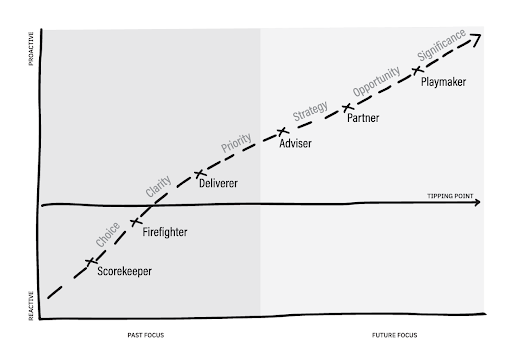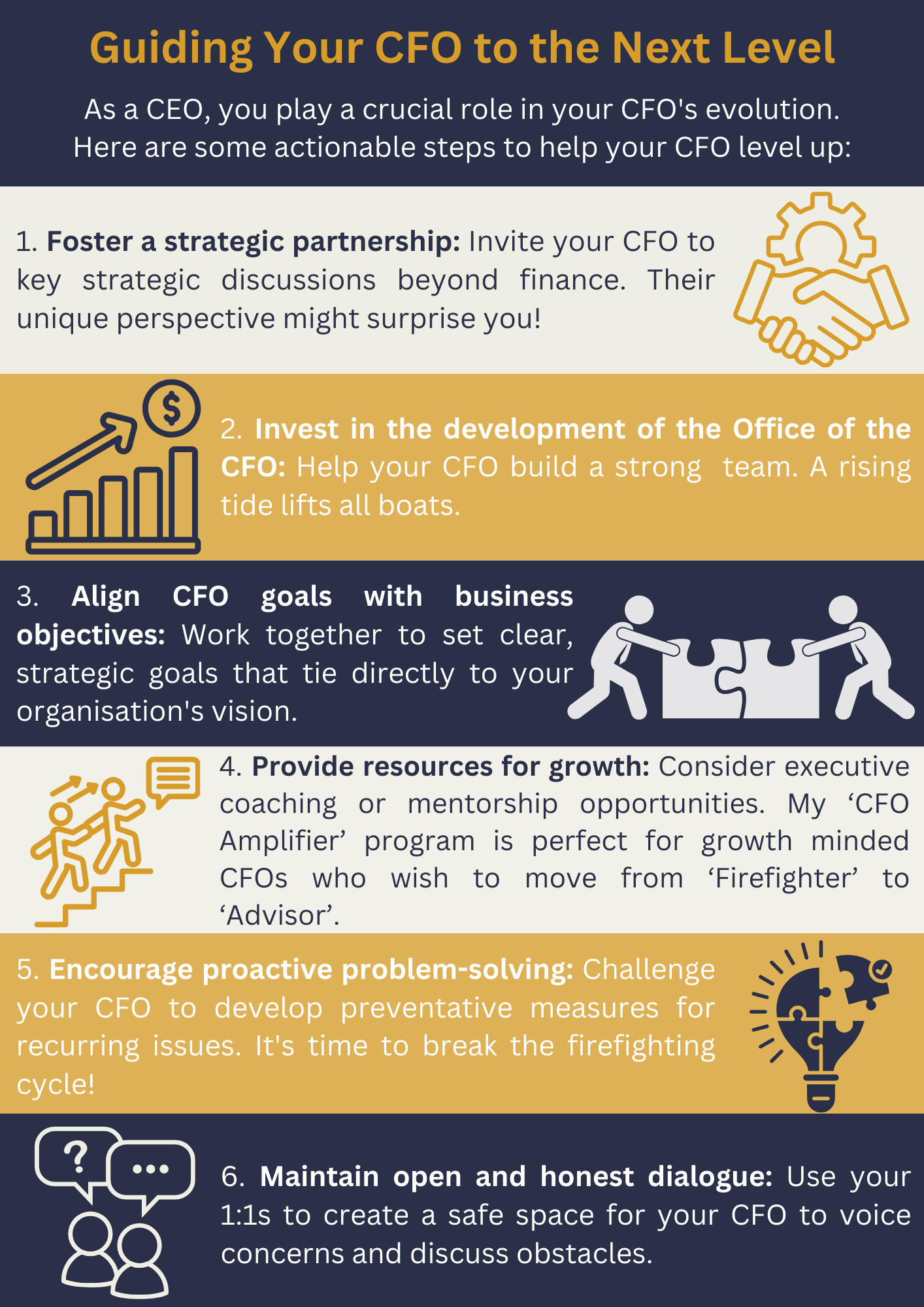In my early career, I worked adjacent to a finance leader, let's call him Tom, who was the epitome of a firefighter. He was hired during a period of explosive growth and was brilliant at putting out fires. He quickly gained a reputation as the go-to problem solver and the CEO was therefore willing to temporarily overlook the fact that his inbox was always overflowing, his team were overwhelmed and stressed, anxiously awaiting the next emergency and he rarely made it to strategic planning meetings. Unfortunately, it soon became apparent that there were significant gaps in Tom's performance.
Now that I'm older and can view the situation from the perspective of an Executive Coach I understand something that I didn't back then – Tom had incredible potential. He just needed the right guidance to evolve from a reactive firefighter to a proactive strategist. He was relatively new to the CFO role and the manic pace that he set came from the very best place. He really just wanted to help people and he wanted to help them NOW.
As you know, the role of the Chief Financial Officer (CFO) has transformed dramatically since then. Gone are the days when CFOs were tucked away in the back office. Today, whilst there are still crunch times in the business where finance leaders are expected to operate at a furious pace, they're additionally expected to be strategic partners, driving growth and innovation alongside the CEO.
Enter the CFO of the Future Index – a tool I've developed to help CFOs like you assess and elevate. Think of it as a GPS for your career journey. This simple yet powerful framework plots CFOs along two critical axes: their level of proactivity and their impact on the business. From the reactive "Scorekeeper" to the proactive "Playmaker," this index provides a clear roadmap for CFO development.
In this blog series, we'll be your guide through each level of the CFO of the Future Index, starting with the "Firefighter" stage. We'll explore how to recognise this operational level, understand its implications, and most importantly, how you can partner with your CEO to elevate to the next stage: the "Deliverer."
Key characteristics of a Firefighter CFO include:
• They're always in crisis mode, rushing from one urgent issue to another
• Decision-making happens in the heat of the moment, without much long-term analysis
• They're deeply entrenched in day-to-day operations, leaving little room for strategic thinking
• Proactive planning? That's a luxury they can't afford
• Their team is often as overwhelmed as they are, leading to high stress and potential burnout
Many CEOs face challenges when working with a Firefighter CFO;
• Your CFO might struggle to contribute meaningfully to strategic discussions
• Financial performance can be inconsistent, leading to unexpected hurdles
• There might be a communication gap, with financial data not translating into actionable insights
• Long-term risks could be overlooked in the rush to solve immediate problems
The impact on your business can be significant. Think missed growth opportunities, inefficient resource allocation, and stunted organisational development. But don't worry – recognising these challenges is the first step towards improvement.
If you are a CFO who wants to lead with impact and create value for your business, being a firefighter for any extended period of time is business critical.
Firefighter CFOs often possess:
• Incredible problem-solving abilities
• A deep understanding of your company's financial intricacies
• The ability to adapt quickly to changing situations
• Mental toughness and resilience
These skills, when properly nurtured, can transform your Firefighter attributes into a strategic asset. It's like turning a skilled EMT into a preventive health specialist, a journey my father has been on throughout his career in the Navy. Same core skills, but a whole new level of impact.
You can spot a Deliverer CFO by their behaviour;
• They work diligently in producing the core finance deliverables on time each month
• Their team are settled and team turnover is stable
• The data is accurate and through discussion can be turned into financial insights
• They have a high level of corporate knowledge
• They're building their profile outside of the finance function
According to our research, 'Deliverer' CFOs make up 1 in 5 of all CFOs and whilst there is still room for improvement, they make a positive contribution to their teams and their businesses.
What's your experience as a Firefighter CFO?
What are some of you strengths and challenges?
Have you experienced the transformation of your CFO from Firefighter to Deliverer?
Love to hear your thoughts...



